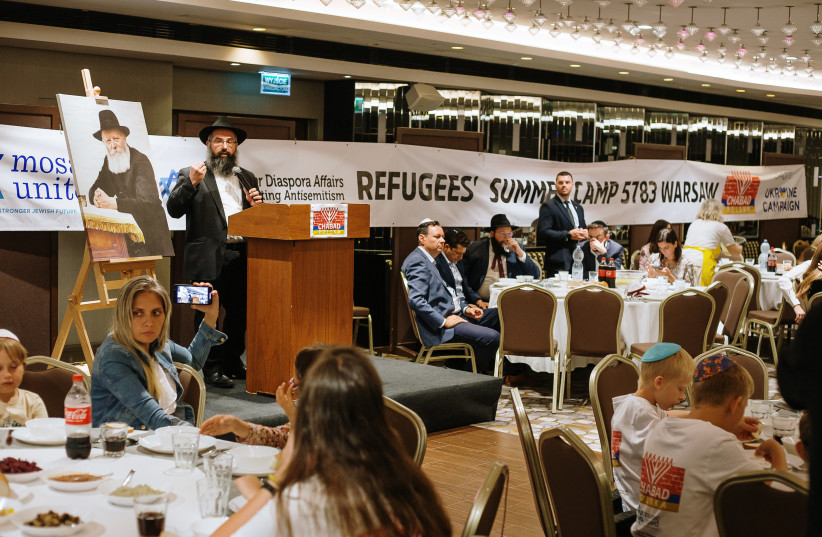Chabad of Poland, in collaboration with Mosaic United and Israel's Ministry of Diaspora Affairs, launched a summer program for over 200 Jewish refugees from Ukraine earlier this week, in the presence of Diaspora Affairs Minister Amichai Chikli. This initiative comes as part of Mosaic United's commitment to supporting Jewish communities and fostering connections with Jewish identity and Israel.
Mosaic United, which is a partnership between the State of Israel and Jewish philanthropists, recently announced a $2 million funding allocation to support Jewish summer camps for children, youth, and adults who have been displaced by the conflict in Ukraine.
That said, Mosaic United's investment in summer camps for Ukrainian Jews has become even more extensive, while the current initiative stands at an impressive $3.7 million, with an estimated 5,300 participants expected to benefit from the program. The initiative encompasses 79 camps being offered by 26 different providers across 14 countries, demonstrating the broad reach and accessibility of the program.
“Growing up we’d always look to the summer for an opportunity to leave the monotony of the rest of the year behind for an opportunity to play sports, have fun, and build everlasting friendships,” said Chabad of Poland director Rabbi Sholom Ber Stambler. “For our children, the summer is a unique time where we are able to provide informal education focused on Jewish identity, heritage, values, and customs in a more holistic and dynamic way.”
Mosaic's Diaspora presence
Chabad of Poland co-director Rabbi Mayer Stambler added that “we’re extremely thankful to our partners – Mosaic United as well as Minister Amichai Chikli and his team – for supporting our summer program for Ukrainian Jewish refugees." He continued saying that their “hope is that our program will provide these children with some semblance of normalcy and emotional solace this summer, in a fun and inspiring setting."

Stambler added that Chabad in Poland is "extremely thankful to JRoots co-founder Tzvi Sperber and his incredible team," for helping to facilitate the funding for this program."
Building upon the success of previous years, Mosaic United has said it continues to prioritize the "enrichment of Jewish identity and connection to Israel," among Ukrainian Jews through immersive summer camp experiences.
In addition to the ongoing summer program for Jewish Ukrainian refugees, another camp called Ystreet is currently in operation. This camp, located in the small town of Dubingai, Lithuania, at the ORO Dubingai Hotel, has been hosting 135 Ukrainian Jewish participants. The camp offers comfortable rooms with various conference halls for educational activities. Situated in a beautiful forest near Lithuania's longest lake, participants can enjoy swimming and boating in the lake. The camp premises are guarded and provide sports fields, a basketball court, a tennis court, a swimming pool, and a jacuzzi.
Dubingai is located in the heart of former Jewish Lithuania and is within driving distance of Vilnius and Kaunas. The camp includes guided tours to explore the rich Jewish cultural heritage in Lithuania and its influence on the development of the Baltic region and the wider Jewish world.
The program of the Ystreet camp is designed around Jewish values and includes workshops on Israeli culture, music, dance, and cuisine. There are lessons and workshops on Jewish history and traditions of Ukraine and the Baltics, as well as art workshops based on Talmud, Torah, and Jewish tradition. The camp also incorporates a Shabbat ceremony and a guided tour to Jewish sites in Lithuania.
The educational team of the Ystreet camp consists mostly of counselors who have undergone an educational course for young educators. The team includes 22 young Jewish individuals, including 10 Ukrainians and several Israelis, who work with the children. The camp administration, led by Ilona Kaminskaya and Alina Lesch, has extensive experience of up to 20 years in informal Jewish education.
